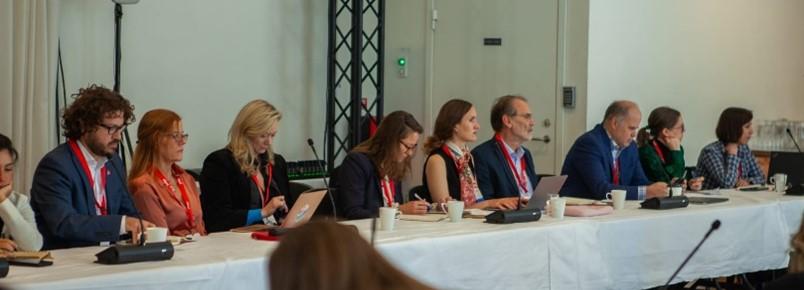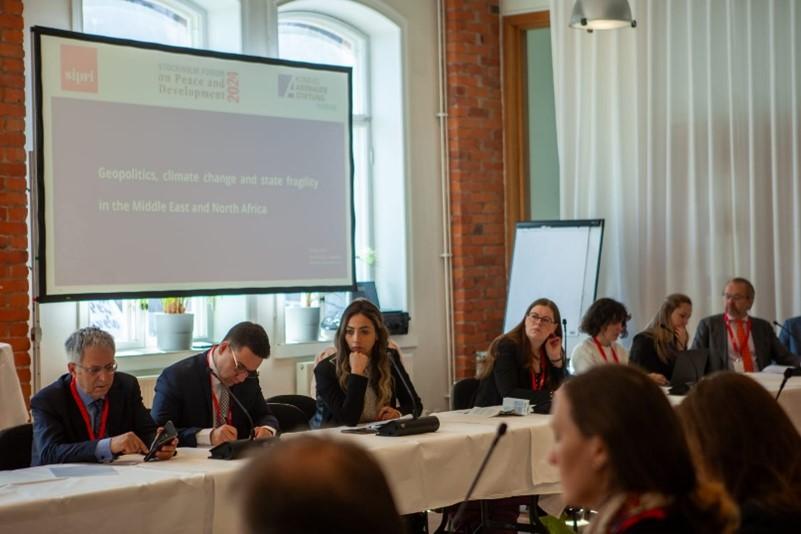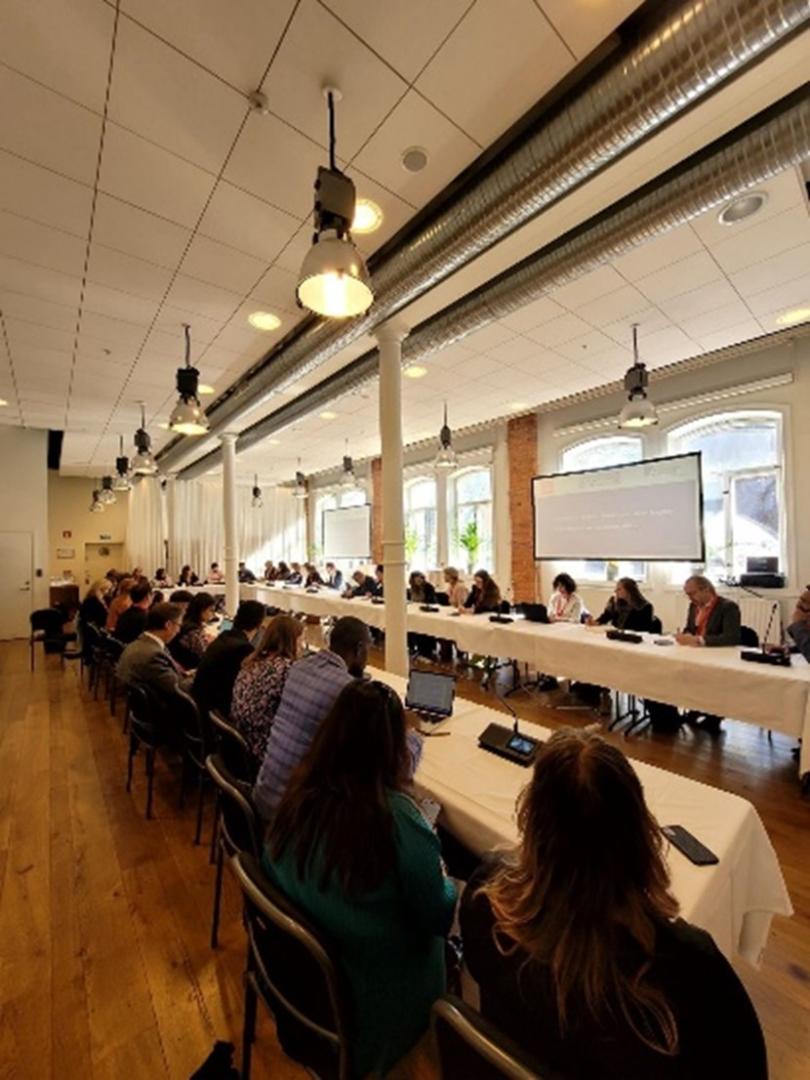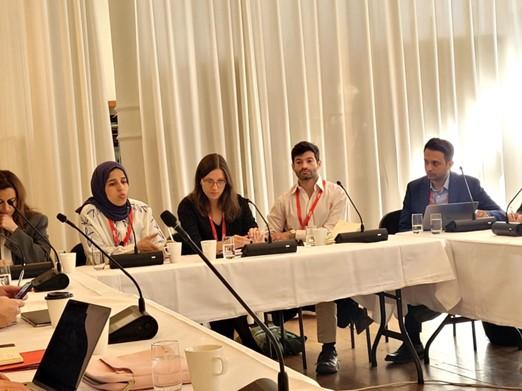Forum
Détails
With over 400 participants from around the world, the 2024 Stockholm Forum on Peace and Development under the theme of “On the Edge: Navigating a Changing World” featured a diverse range of sessions about ways to address growing distrust between the Global North and South, and between citizens and their political representatives. It also explored how multilateral efforts can strengthen international arrangements for peace and security while looking for possible pathways towards a more peaceful, unified future.
Within the framework of the forum and in partnership with SIPRI, KAS-REMENA organized a roundtable on May 7 on “Geopolitics, Climate Change and State Fragility in the Middle East and North Africa”, which brought together climate and security experts from the MENA region to reflect on the complex interconnections between climate change and conflict. The roundtable also provided an opportunity to zoom in on specific cases in the region, such as Iraq, Lebanon, Libya, and Yemen, and discuss possible entry points for dialogue and cooperation within the region and beyond.
Speakers examined how climate change acts as a threat multiplier for already existing challenges in the MENA region. It reveals the fragilities of states, including poor governance and mismanagement of resources. Another point highlighted was the issue of financing and the lack of disaster preparedness, which has led to inadequate and delayed responses to more frequent extreme weather events. Experts agreed that political fragmentation can lead to poor coordination between already weakened political institutions, resulting in a lack of disaster preparedness. These failures accentuate mistrust of government, which can lead to violence and exacerbate the link between fragility and climate.
While climate change can expand the underlying challenges of the region, the speakers emphasized that it can also serve as an entry point for cooperation. For this to transpire, however, the political case for climate action and policy has to be made more convincingly in order to create the political will and motivate the necessary funding. This also requires effective venues and platforms for dialogue between relevant stakeholders. By investing in such political solutions and priority setting, climate change cannot only serve as threat multiplier but also as catalyst for political action.









